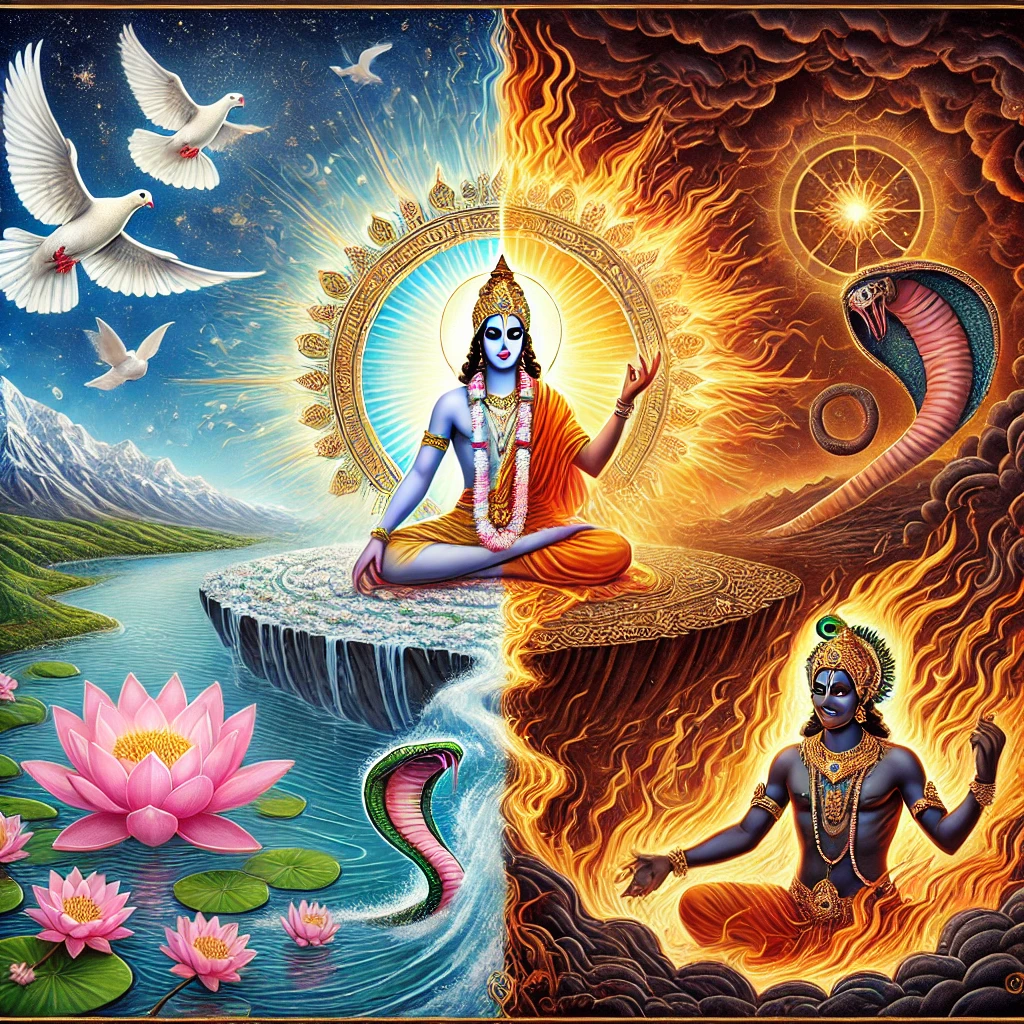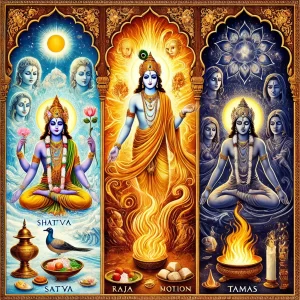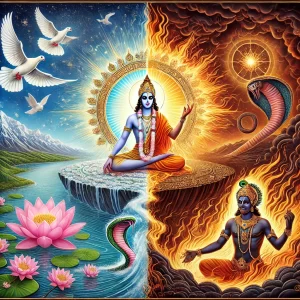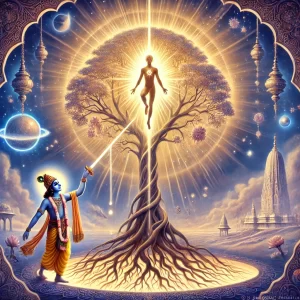

— Daivasura Sampad Vibhaga Yoga: The Yoga of the Divine and Demoniac Qualities
In Chapter 16 of the Bhagavad Gita, Lord Krishna outlines two powerful forces that shape a person’s destiny:
This chapter doesn’t talk about good vs. evil in the mythological sense—it is about human psychology. These qualities exist in all of us, and Krishna is helping us become more aware of which traits we are cultivating—because our character shapes our future.
Let’s explore five key life lessons from Chapter 16 and how they apply to the way we live, lead, and love.
1. Divine Qualities Begin with Inner Strength and Non-Harm
Krishna begins the chapter with a list of Daivi qualities—such as fearlessness, purity of heart, compassion, truthfulness, humility, self-restraint, and non-violence.
Verse 1–3 (summary): “Fearlessness, purity, self-control, non-violence, truth, absence of anger, renunciation, peacefulness—these are divine qualities.”
Lesson: True strength is not in control or domination, but in kindness, consistency, and inner stability. Cultivate virtues like patience, forgiveness, and honesty—not just because they’re “good,” but because they create a mind that is peaceful and a heart that is fearless.
2. Ego, Arrogance, and Cruelty Are the Path to Bondage
Krishna contrasts divine traits with Asuric (demoniac) qualities, which are fueled by selfishness, pride, anger, hypocrisy, and disregard for others.
Verse 4: “Hypocrisy, arrogance, pride, anger, harshness, and ignorance—these are demoniac qualities.”
Lesson: Everyone has moments of ego or anger—but if these traits dominate your personality, they create internal chaos and external conflict. Notice how often your actions are based on pride, comparison, or fear. Replace them with curiosity, humility, and understanding.
3. Your Beliefs Shape Your Behavior—Choose Them Wisely
People with demoniac tendencies deny the existence of a higher reality, believing that life is only about desire, power, and survival. This mindset fuels greed, corruption, and endless dissatisfaction.
Verse 8: “They say: the world is without truth, without basis, without a God, brought about by desire alone.”
Lesson: How you see the world determines how you live. If you believe life is meaningless or purely material, you may chase short-term pleasures while feeling empty inside. When you recognize a higher purpose, your choices become more conscious, joyful, and aligned.
4. Desire and Anger Are the Gateways to Destruction
Krishna warns that the three gates to hell—lust (kama), anger (krodha), and greed (lobha)—can destroy one’s peace, potential, and progress. These emotions cloud judgment and lead to impulsive, harmful decisions.
Verse 21: “There are three gates to hell—lust, anger, and greed. One should abandon these.”
Lesson: You don’t need to suppress emotions—but you do need to watch them without being controlled by them. When desire becomes obsession, or anger becomes your reaction style, pause. Practice calming the mind through breath, self-inquiry, or walking away when needed.
5. Living with Dharma Leads to Peace and Progress
Krishna concludes that those who live with clarity, compassion, and discipline—who follow dharma (right action)—will grow spiritually and emotionally. But those who disregard inner wisdom and live impulsively are headed for deeper suffering.
Verse 23–24: “He who acts contrary to scripture and guidance does not attain happiness. Therefore, let scripture be your guide in what to do and what not to do.”
Lesson: Your conscience is your inner scripture. Reflect before acting. Choose what brings growth over comfort, harmony over victory, and truth over convenience. Over time, dharma becomes your compass—and life becomes more meaningful.
Final Thoughts
Chapter 16 of the Bhagavad Gita is a mirror for self-reflection. It doesn’t condemn or glorify—it simply reveals that we have both divine and darker tendencies within us. The chapter’s wisdom empowers us to become more conscious of which seeds we water in our daily life.
“Divine qualities lead to liberation. Demoniac qualities lead to bondage.” – Gita 16:5“
The invitation is simple:







